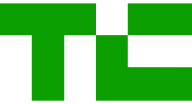In the fast-paced world of technology, finding the right talent can be complex. IT recruitment agencies are the key players in this challenging process, bridging the gap between companies needing tech professionals and the pool of qualified candidates. They serve as a vital link, ensuring that organizations have access to the best minds in the industry, thereby fueling innovation and growth.
The role of IT recruitment agencies has become increasingly critical in today’s rapidly evolving tech landscape. They understand the specific needs of the tech industry and keep up-to-date with the latest trends, ensuring they can provide the most relevant and up-to-date advice to employers and job seekers. This blog will take you on a deep dive into the world of IT recruitment agencies, exploring their definition, roles, and importance in the ever-changing technology sector.
The Key Players
Top IT recruitment agencies are pivotal in shaping the tech industry’s workforce. These agencies understand the market dynamics and align qualified candidates with appropriate roles. They streamline the recruitment process for companies, handling everything from resume screening to preliminary interviews. In addition, they offer valuable insights into salary benchmarks and industry expectations.
Leading agencies differentiate themselves through their personalized approach to recruitment. Acknowledging that each company has unique needs, they tailor their services accordingly. With a global reach, these agencies source talent from various regions to meet companies’ requirements. They use advanced technologies to enhance the recruitment process’s efficiency, maintaining professionalism throughout their interactions.
The Recruitment Process
Understanding the recruitment process is essential for both companies and job seekers. Here’s a breakdown of the steps typically involved in IT recruitment.
Initial Client Consultation
The initial client consultation is the first step in the recruitment process. It involves understanding the client’s needs, company culture, and specific requirements for the job role. It’s a crucial stage that sets the tone for the recruitment process. It ensures that the recruiter and the client are on the same page.
Job Profiling and Requirement Analysis
Job profiling involves defining the job role and responsibilities. It also includes determining the skills, qualifications, and experience required for the job. On the other hand, requirement analysis involves identifying the key characteristics an ideal candidate should possess. These steps are vital in finding the right fit for the job.
Sourcing Strategies for IT Talent
Sourcing strategies are methods used by recruiters to find potential candidates. These strategies can include online job postings, networking events, or headhunting. For IT talent, recruiters may also use specific platforms like GitHub or Stack Overflow. The goal is to reach as many qualified candidates as possible.
Screening and Shortlisting Techniques
Screening involves reviewing resumes and applications to identify potential matches for the job role. Shortlisting is narrowing down the pool of candidates based on the job profile and requirements. Techniques can vary from manual review to automated systems. The aim is to identify the most suitable candidates for further evaluation.
Navigating Specialized Fields
Specialized fields in IT require a nuanced approach to recruitment. Let’s explore how recruiters navigate these areas.
IT Recruitment for Software Development
Software development is a broad field that requires a range of skills. Recruiters must understand different programming languages, development methodologies, and project management approaches. They also need to assess a candidate’s problem-solving skills and creativity. A strong network in the developer community can be beneficial for sourcing candidates.
Cybersecurity Talent Acquisition
Cybersecurity is a critical area in IT with a high demand for skilled professionals. Recruiters need to understand the specific skills required in cybersecurity, such as intrusion detection, incident response, and risk management. They also need to keep up with the latest trends and threats in the field. Certifications like CISSP or CISM can be key indicators of a candidate’s expertise.
Data Science and Analytics Recruitment
Data science and analytics involve extracting insights from large volumes of data. Recruiters need to look for candidates with strong mathematics, statistics, and computer science backgrounds. Knowledge of data visualization tools and machine learning algorithms is also important. The ability to communicate complex data findings clearly and understandably is a crucial skill recruiter should seek.
Technology Trends Impacting Recruitment
Artificial Intelligence (AI) is becoming a vital tool for recruitment agencies. It automates repetitive tasks such as resume screening and candidate matching. AI also predicts hiring outcomes based on past data, enabling data-driven decisions. AI-powered chatbots provide real-time responses to inquiries and schedule interviews, enhancing the candidate experience.
Blockchain technology and decentralized hiring platforms are transforming the recruitment landscape. Blockchain provides a tamper-proof record of candidate credentials, ensuring transparency and security. Decentralized hiring platforms connect employers and candidates directly, eliminating intermediaries. They use smart contracts to automate contract negotiation and payment processes, fostering efficiency and trust.
Challenges in IT Recruitment
One significant challenge in IT recruitment is the talent shortage for high-demand tech roles. As technology evolves, new roles requiring niche skills emerge. However, the supply of professionals with these skills often needs to improve, creating a talent gap. This gap hinders the growth of tech companies and slows technological progress.
Diversity and inclusion remain significant hurdles in IT recruitment. Despite concerted efforts, representation from various groups, including women and people of color, must be improved in the tech industry. This lack of diversity limits the variety of ideas and perspectives. Unconscious bias in recruitment can inadvertently favor certain groups, exacerbating the issue.

Building Strong Employer-Recruiter Partnerships
Collaborative talent planning is essential for building solid employer-recruiter partnerships. It involves identifying the organization’s talent needs and devising strategies to meet them. Regular communication and understanding between the two parties are crucial. Clear expectations and roles ensure transparency and accountability.
Effective communication strategies are vital for successful partnerships. These strategies include regular meetings, status updates, and feedback sessions. Active listening and empathy are essential to respecting each other’s views and concerns. Clear and concise communication prevents potential misunderstandings or conflicts.
The Future of IT Recruitment Agencies
The evolving role of IT recruitment agencies in remote work environments is a hot topic. With the rise of remote work, these agencies now recruit talent from across the globe. This expansion poses new challenges, such as managing time zones and cultural differences. Agencies also need to assess candidates’ ability to work remotely, which requires different skills than traditional office work.
Anticipating and adapting to industry changes is crucial for the future of IT recruitment agencies. The tech industry constantly evolves, with new trends and technologies emerging rapidly. These changes impact the skills and roles required in the industry. Agencies need to stay updated and proactive, continuously learning and innovating.
Measuring Recruitment Success
Key Performance Indicators (KPIs) measure the effectiveness of the recruitment process. These may include time to hire, cost per hire, quality of hire, and candidate experience. Tracking these KPIs can provide valuable insights into the strengths and weaknesses of the recruitment process. They provide a benchmark for comparing performance over time or against industry standards.
Continuous improvement strategies are essential for enhancing recruitment success. They regularly review and refine the recruitment process based on feedback and data. These strategies include implementing new technologies, enhancing candidate experience, and promoting diversity and inclusion. Regular training and development for the recruitment team ensure they have the skills and knowledge to excel.
The Role of Technology in Streamlining Recruitment
Applicant Tracking Systems (ATS) are vital in streamlining the recruitment process. They automate tasks such as posting jobs, screening resumes, scheduling interviews, and managing candidate data. ATS provides a centralized platform for managing the entire recruitment process. They also offer analytics and reports, helping agencies track their performance and make informed decisions.
Video interviewing platforms are revolutionizing recruitment. They allow agencies to conduct interviews remotely, expanding their reach and flexibility. These platforms save time and resources by eliminating the need for travel and scheduling. They also provide a more personal connection than phone interviews, enabling a better assessment of candidates.
Conclusion
IT recruitment agencies serve as a crucial bridge connecting tech firms with the right talent. These agencies navigate the intricate tech landscape, adeptly matching skilled individuals to appropriate roles. Their success lies in their personalized approach, understanding of market trends, and use of advanced technology to simplify recruitment.
Looking ahead, these agencies will need to adapt swiftly to evolving industry changes, especially as remote work becomes more commonplace. They must leverage new technologies and maintain effective communication to build strong relationships between employers and recruiters. The future of IT recruitment agencies relies on their ability to fine-tune their strategies in this dynamic field constantly.





